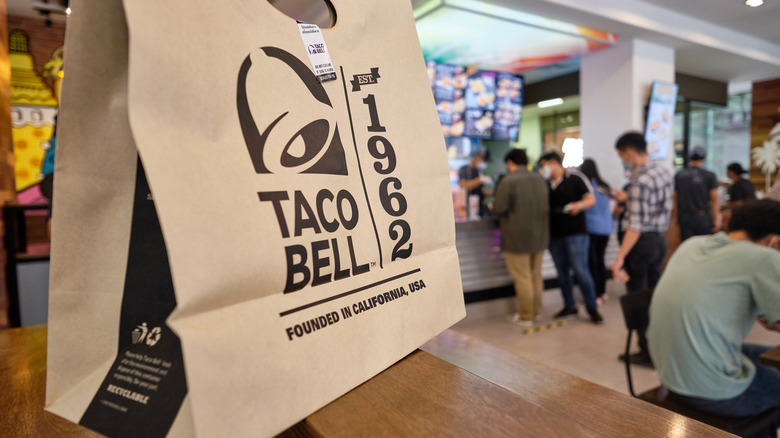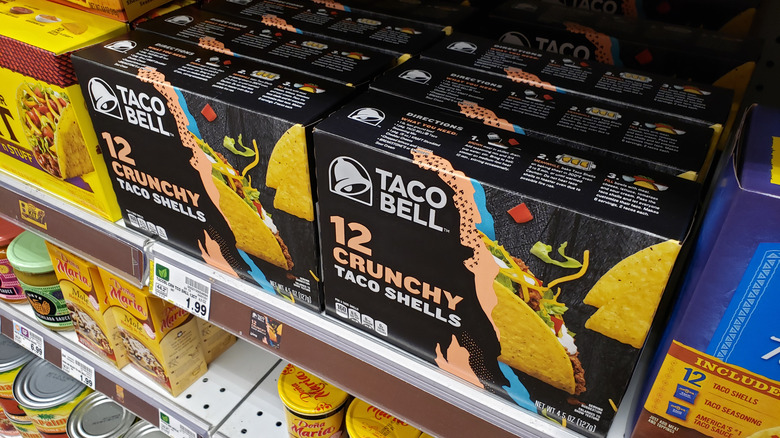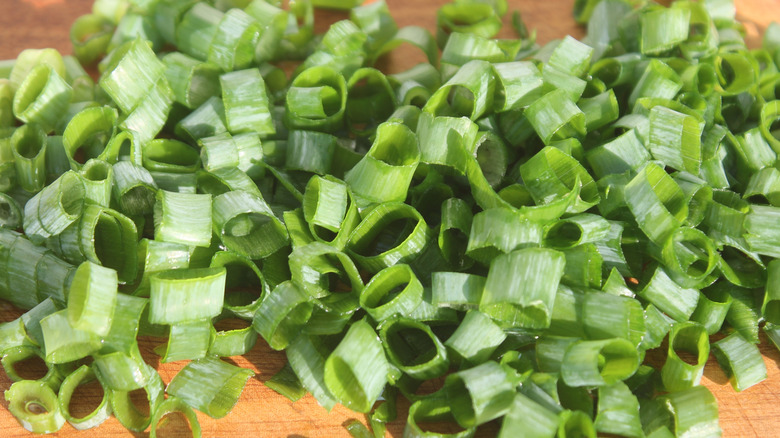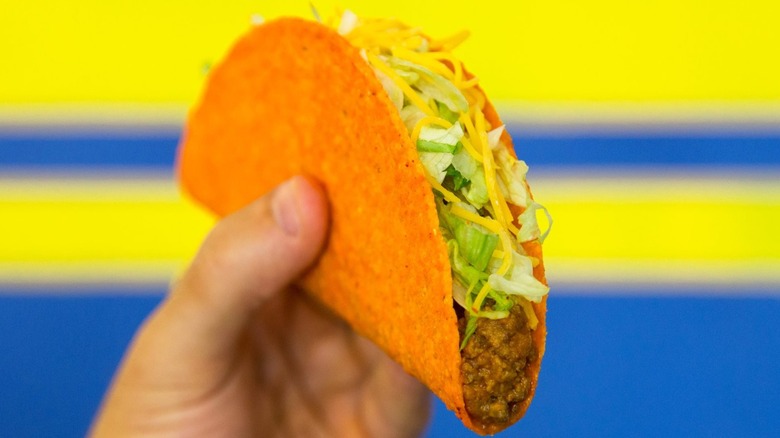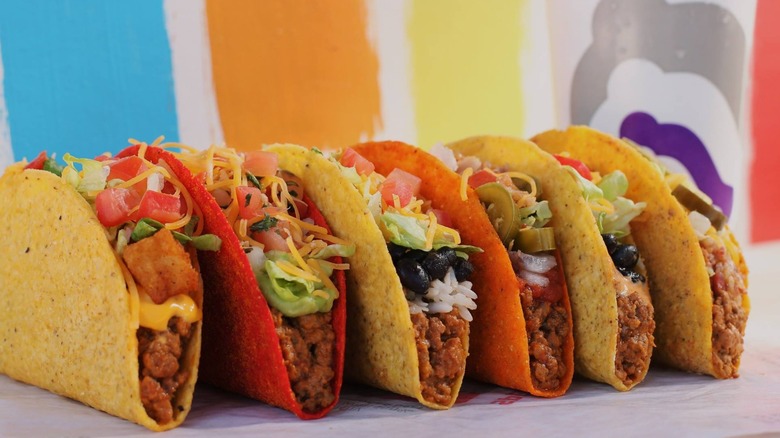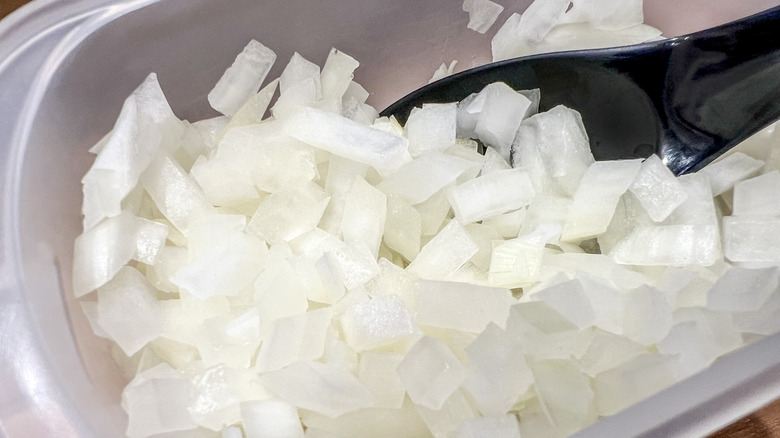The Biggest Recalls In Taco Bell's History
From reliable late-night munchies, to bags full of tasty food for less than 20 bucks, to the brilliant invention of a taco with a Doritos shell, Taco Bell has always been there for us. But even our beloved Bell isn't immune to slip-ups. The fast food giant has faced several big recalls over the years. Whether they were caused by questionable ingredients in the taco shells or unexpected contamination issues, Taco Bell has, on occasion, been forced to pull items from the menu or even close restaurants temporarily for the safety of its customers.
Just about every major fast food chain has made it onto our list of the worst fast food recalls in history, including McDonald's and Burger King, so Taco Bell is in good company. For those who love to "Live Más," we've rounded up some of the most noteworthy cases that the Mexican-inspired brand has ever faced.
Bioengineered corn in the taco shells
An often untold truth about GMOs is that the rumors about them being harmful are false. So perhaps it's unsurprising that Taco Bell got wrapped up in the very first food recall related to genetically engineered ingredients back in 2000. Taco shells distributed in stores by Kraft Foods under the Taco Bell brand were pulled from shelves because they contained StarLink corn, which was only approved for animal consumption. The GMO corn contained a protein called Cry9C, which raised concerns about potential allergic reactions for some consumers.
Taco Bell didn't actually produce these taco shells, but out of an abundance of caution, the chain began replacing the taco shells in its restaurants (which were bought from the same supplier) in case they had been affected. No adverse reactions were reported, and it is not certain if these GMO taco shells were even harmful to humans. Regardless, the StarLink corn had not been tested thoroughly enough to deem it safe for human consumption, so the shells had to be sacked.
Pulling the plug on green onions
In 2006, at least 71 people became sick with E. coli after eating at Taco Bell locations in New Jersey, New York, Pennsylvania, and Delaware, and an investigation was launched to find the culprit. After three samples returned presumptive positive for the bacteria, the chain pulled green onions from all locations. E. coli often causes mild symptoms, like stomach upset and diarrhea, but some strains can lead to severe illness and even death. In this case, most victims were hospitalized, and some experienced kidney failure.
Green onions were also linked to a deadly hepatitis outbreak at Chi-Chi's in 2003, so the company understandably acted quickly. Taco Bell closed and sanitized multiple restaurants. About a week later, the investigation found that lettuce was probably the real source of the bacteria. So the chain changed its supplier for that ingredient.
The incident cost Taco Bell $20 million, but that wasn't the end of its financial concerns. Boskovich Farms, which grew the green onions, sued the company in 2007. The suit alleged that Taco Bell linked the onions to the outbreak even after they were ruled out. The farm claimed it lost millions of dollars' worth of business as a result. Around the time of the recall, Taco Bell said green onions wouldn't return to its menu. (In fact, they are currently not listed on its website.) The dispute landed in arbitration and went on for years. An arbitration panel dismissed Boskovich Farms' claims, and the producer unsuccessfully challenged the outcome in court.
Canada's lettuce recall
In yet another leafy fiasco, Taco Bell-related lettuce was implicated in an E. coli outbreak that made 30 people sick in Canada. It began in late December 2012 and continued into the first half of January 2013. The affected areas included Nova Scotia, Ontario, and New Brunswick. An investigation determined that the lettuce initially came from California. Distributed by FreshPoint, the tainted product was largely linked to KFC and KFC-Taco Bell outlets. A recall was issued to be on the safe side, but by that time the lettuce might not have been in circulation any longer due to its short shelf life.
Leafy veggies like lettuce are particularly susceptible to E. coli because the soil they're grown in is more likely to be exposed to sources of contamination, like animal feces or water tainted with the bacteria. Adding to the risk, these veggies are typically not cooked, so it's less likely the bacteria will be killed before being consumed.
Contaminated meat
Taco Bell's meat has seen some scrutiny over the years, with wild rumors swirling that it contained everything from worms to sawdust (false, by the way). The chain was even sued by an Alabama law firm arguing it shouldn't be allowed to call it "beef" because it was only 36% meat. That lawsuit was dropped, and the restaurant hilariously responded with a full-page ad that said, "Thank you for suing us." It also proceeded to reveal the truth about Taco Bell's seasoned beef, which is actually 88% beef (um, touché?).
But in 2019, Taco Bell recalled around 2.3 million pounds of its seasoned beef because of contamination. This move came after a customer found a piece of metal in their food. While 12% of the seasoned filling isn't beef, zero percent of it should be made of metal. The recall was voluntary, and Taco Bell didn't report anyone having adverse reactions related to the incident. So, crisis averted.
However, reports of Taco Bell locations "running out" of beef or pulling it from the menu because of quality concerns started swirling before the recall was officially announced, leaving a lot of customers speculating about what was going on. Taco Bell was quick to respond, saying, "Nothing is more important than our customers' safety, and nothing means more to us than their trust," in a press release.
Onions related to E. coli outbreak
Taco Bell became embroiled in one of the biggest food recalls of 2024 after onions were tied to E. coli infections. However, in this case, the focus primarily fell on a burger giant. It all started with infections spreading among McDonald's customers who had consumed Quarter Pounders. This would prompt Mickey D's to remove its slivered onions from the menu on October 22, 2024, after the onion supplier, Taylor Farms, issued a voluntary recall. However, several other fast food chains, including Pizza Hut, Burger King, KFC, and Taco Bell pulled onions from their menus as well as a precaution.
By December 3, the Centers for Disease Control and Prevention had deemed the outbreak to be over. Tragically, 104 people had gotten sick in 14 states, and one person died. At the end of the ordeal, nearly all of the cases were related to food from McDonald's, so Taco Bell was off the hook.
